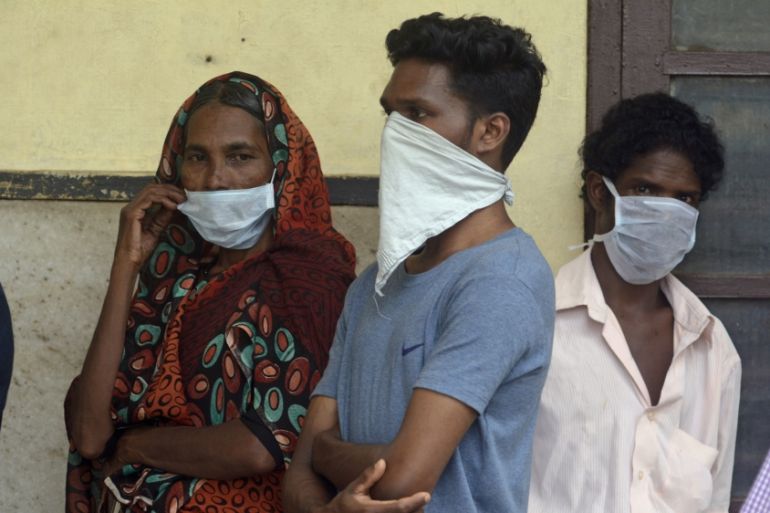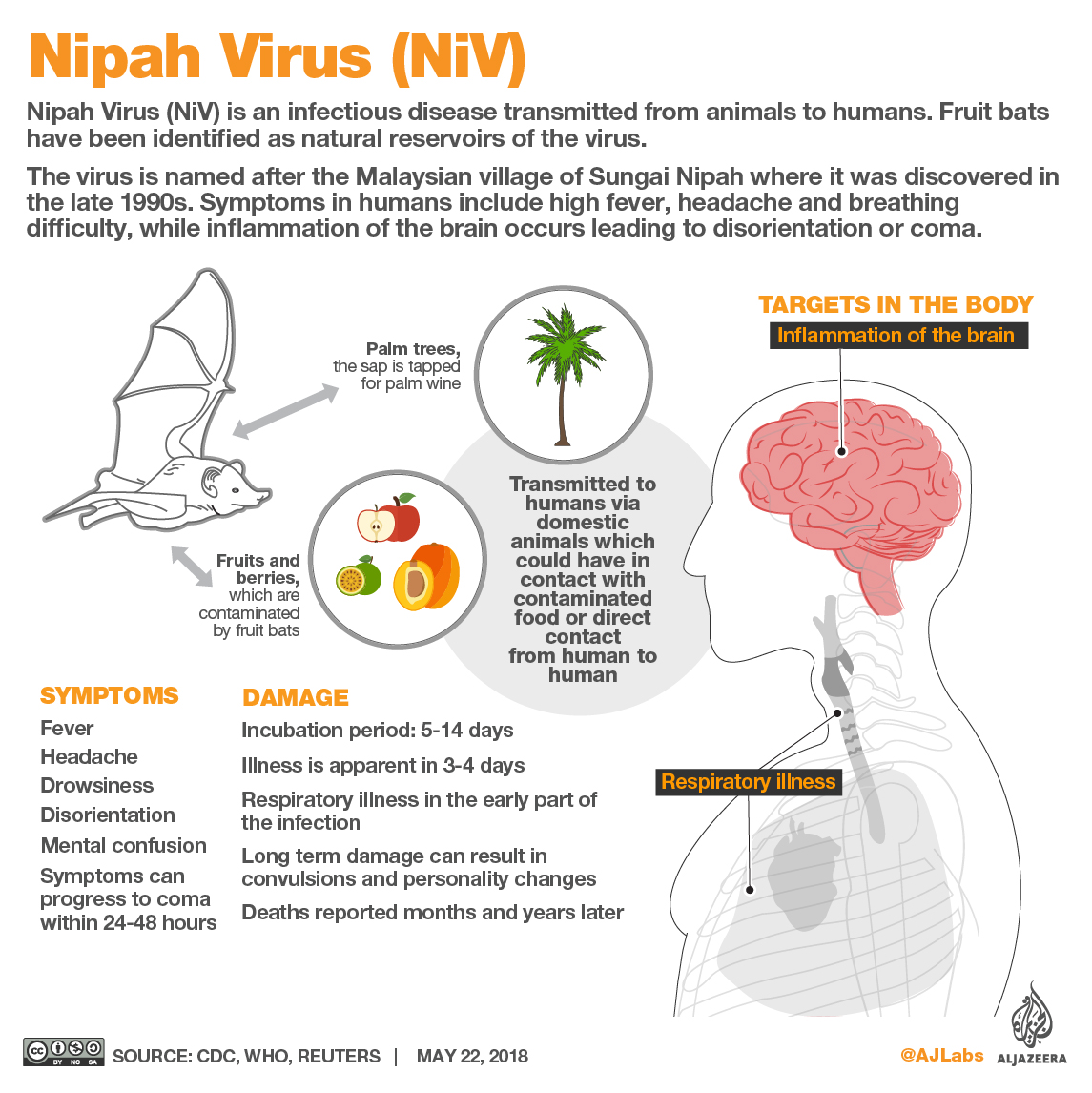Nipah virus outbreak kills 10 in India
No vaccine available for deadly infection carried by fruit bats, as 12 tested positive in southern state of Kerala.

A virus carried by fruit bats has killed at least 10 people in India’s southern state of Kerala, health and government officials said.
Nipah virus, which spreads fast and has a reported death rate of 70 percent, can infect both humans and animals, particularly pigs. There is no vaccine available for it.
Keep reading
list of 4 items‘We share with rats’: Neglect, empty promises for S African hostel-dwellers
Thirty years waiting for a house: South Africa’s ‘backyard’ dwellers
Photos: Malnutrition threatens future Afghan generations
K K Shailaja, Kerala state health minister, said on Tuesday that 10 people died of the virus and two more were in critical condition.
“We had sent 18 cases for testing for Nipah virus out of which 12 have come back positive,” she told reporters. “Rest of the six are negative.”
Those who have died are mainly from the districts of Kozhikode and Mallapuram, including a 31-year-old nurse, who was treating patients infected with the virus.
“The victims from Malappuram were reportedly in contact with those infected in Kozhikode,” Shailaja said, adding that no new cases have been reported in the past 24 hours.
The outbreak has caused panic in the state, with the government stressing that is handling the issue with “utmost seriousness”.
“All efforts are being made to ensure that more lives are not lost,” Kerala Chief Minister Pinarayi Vijayan was quoted as saying by local media.
‘Look after our children’
Lini Puthussery, a nursing assistant, was one of the victims. The mother of two, who contracted the disease while attending to three patients infected by Nipah, died on Monday.
In her last letter addressed to her husband, Puthussery wrote: “I’m almost on the way … Don’t think I will be able to meet you. Sorry. You should look after our children well.”
Heartbreaking! Lini, nursing staff and mother of two toddlers, succumbs to Nipah virus, while nursing her patients afflicted with the same. Her dedication towards the job will inspire millions across the world.https://t.co/iMEUSfQXdF
— Meenakashi Lekhi (@M_Lekhi) May 22, 2018
Her body was cremated soon after her death to prevent further spread of the infection.
Nipah virus was first identified in 1998 during an outbreak of disease in Kampung Sungai Nipah, Malaysia, according to the World Health Organization (WHO).
Medical symptoms include high fever, headache, breathing difficulty, brain swelling, drowsiness, disorientation as well as coma. Its primary treatment is intensive supportive care, WHO has said.
